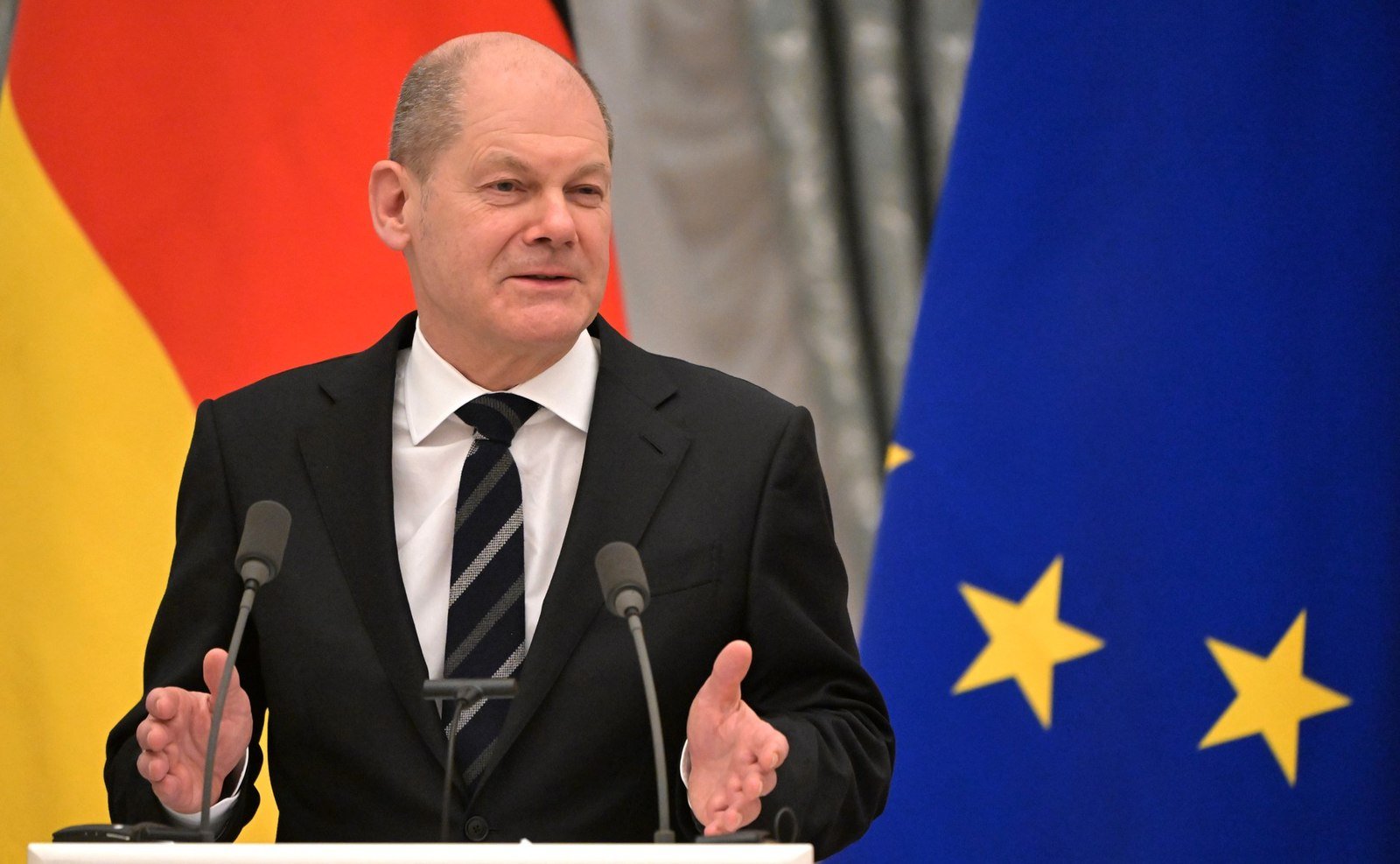German Government Presents New Energy Relief Package
German chancellor Olaf Scholz, who proposed the relief packet, speaks at a press conference earlier this year (Wikimedia Commons).
Germany’s ruling coalition, made up of the Social Democratic Party, the Green Party, and the Free Democratic Party, presented their new energy relief package at a press conference on September 29. This package, which seeks to address German fears about high energy prices in winter months, allocates up to 200 billion euros to lower the sales tax on gas and to cap energy prices.
Energy prices surged drastically in Germany, reaching unprecedented levels following the Russian invasion of Ukraine. Germany had previously relied on cheap Russian gas until the outbreak of the war, which forced the country to turn to more expensive sources of energy. Since then, German consumers have struggled with the unprecedented price increases. Because more than half of Germans heat their homes with gas, many worry that the winter heating season will only exacerbate the problem.
At a press conference on September 29, Chancellor Olaf Scholz, Economy Minister Robert Habeck, and Finance Minister Christian Lindner announced the plan as a “shield” that will protect Germans from high energy costs. Lindner also claimed that the plan would help slow inflation, which broke records when it reached ten percent in September.
The Economic Stabilization Fund (WSF) will finance the package
The Economic Stabilization Fund (WSF), which was established in 2020 to respond to the economic impacts of the COVID-19 pandemic, will finance the package. The Finance Ministry decided to reactivate this fund for the new package, as this allows the German government to borrow outside of its normal borrowing constraints. However, Lindner remained adamant that the borrowing limit will be put back in place next year.
Although the packet is only a rough outline, the coalition government estimated that the packet will cost 150-200 billion euros. In October, a commission will propose more exact details of the packet, including the exact allocation of funds. The coalition government hopes that price control measures will provide relief for households and businesses and resolve some of their worries about increasing heating and energy costs.
The Christian Democratic Union, the largest opposition party in the German Parliament, criticized the packet. Party leader Friedrich Merz claimed that the package came too slowly and is insufficient to reduce high energy costs.
In contrast, the Federal Network Agency supported the plan by asserting that some form of price control will be necessary until 2024. Agency President Klaus Mueller justified the package’s multi-year commitment by saying that the extraordinary situation will not be resolved in the short term.

